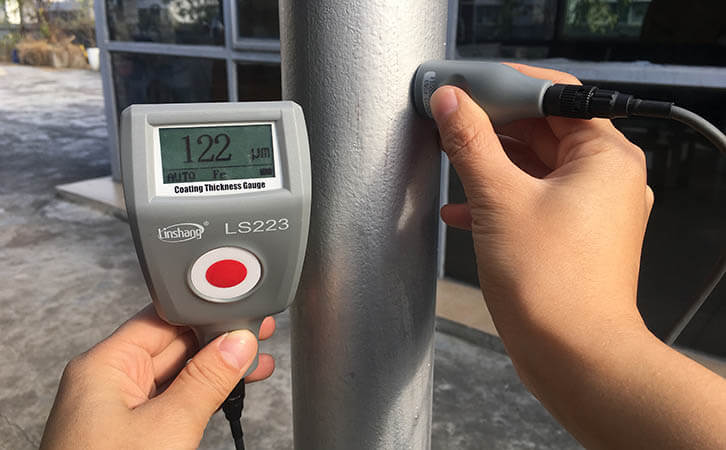Why do We Use Anti-corrosion Coating ?
Anticorrosive coatings are created to cater to industrial corrosion protection of instruments and equipment. Corrosion is a headache in industrial production. On the one hand, corrosion is unavoidable. No matter where the instrument is placed, it is impossible to completely meet the optimal storage requirements of the instrument. On the other hand, the corrosion phenomenon brings great losses to industrial production. Corrosion of the instrument and various equipment not only affects the service life of the instrument, speeds up the replacement of the instrument, increases production costs, but also greatly affects the measurement accuracy of the instrument, making the results of the measurement instrument unreliable. In order to better achieve the anticorrosion of the instrument, the method of adding an anticorrosive coating came into being.
The choice of anticorrosive coating is not arbitrary. For different industrial instruments, due to their different production processes, the characteristics of the product's operating conditions are also different, coupled with some specific requirements of the product itself. First of all, not all instruments are suitable for adding anticorrosive coatings. Anti-corrosion coating is a relatively common anti-corrosion method in the industry, but the application environment of some special instruments has different requirements for whether or not to add an anti-corrosion coating. For some high-precision and high-demand measuring instruments, the thickness of the coating is also very important. of. In order to measure whether the coating thickness meets the standard here, a special instrument anti-corrosion paint coating thickness meter needs to be applied. Therefore, in the process of selecting the anticorrosive coating, it should be determined whether the medium measured by some measuring instruments includes special chemical substances, such as corrosive organic solvents or strong acids and alkalis. Then the anticorrosive paint coating thickness meter is used for anticorrosion. Measurement of coating thickness.
LS223 Paint Coating Thickness Meter
In the process of selecting the anticorrosive coating, attention should also be paid to controlling the mechanical strength and external stress of the anticorrosive coating. Selecting an appropriate anti-corrosion coating with mechanical strength and external stress conditions and applying it to the surface of industrial instruments will achieve unexpected results. During the application process, mechanical strength and external stress conditions can affect the general mechanical properties of the anti-corrosion coating. The anticorrosive performance of the anticorrosive coating means that the coating is resistant to abrasion and impact. The hardness and flexibility of the coating can be guaranteed. Such anticorrosive coatings have better anticorrosive effects when applied to industrial instruments.
The thickness of the anticorrosive coating also has a great influence on the application effect of the anticorrosive coating. Not only does the anticorrosive coating fail to reach the required thickness, the anticorrosive effect will not be achieved. If the anticorrosive coating is too thick and applied to the surface of a special high-precision coating measuring instrument, it will affect the performance of the instrument. Therefore, the thickness of the anti-corrosion coating is measured by the anti-corrosion paint coating thickness meter. The anti-corrosion coating thickness is regulated according to the standard regulations to achieve the ideal anti-corrosion effect.
In the process of selecting anticorrosive coatings, we must also pay attention to the effects of temperature and humidity on the anticorrosive coatings.
- High precision coating thickness gauge for used car
- Automotive paint protection films coating thickness gauge
- Plating Thickness Measuring Instrument for Detecting Anti-corrosion Coating
- Linshang LS220, LS191, LS160A– Necessary for Car Cover Inspection
- Coating Thickness Gauge for Second Hand Vehicle
- Zero Adjustment Step of Coating Thickness Gauge
